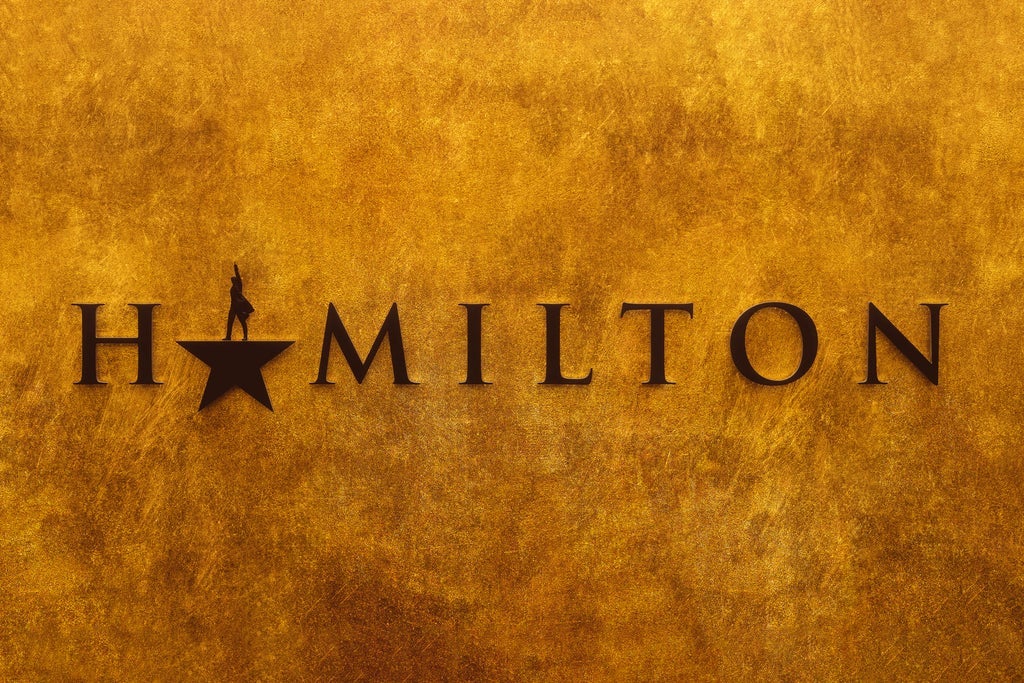HAMILTON: Do Believe The Hype
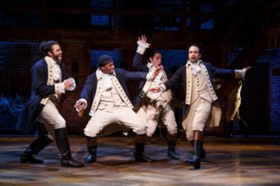
With its delayed opening this month, can Hamilton's London production possibly live up to its Stateside reputation? In the first of two articles, Gary Naylor looks at a key moment in the book and how a single song advances the story in the way that demonstrates the show's command of musical theatre.
Cliff Richard never cracked America and I'm not sure now is the right time to expect American politicians to be welcomed with open arms, but Lin-Manuel Miranda's multi-award-winning musical, Hamilton (based on the life of the $10 dollar bill's Founding Father), has sold out the rebuilt Victoria Palace Theatre and looks set to bestride the Atlantic the way it has bestrode the United States.
Like many fans of musical theatre (and, tellingly, many who would not describe themselves thus), its soundtrack has looped on my Spotify account for 12 months to the exclusion of almost anything else and, in analysing one song below, I attempt to explain why.
A gentle chorus opens (the calm before the storm) but its message is frightening -
"British Admiral Howe's got troops on the water
Thirty-two thousand troops in New York harbor".
This is the existential moment for the rebels, the stakes nationhood itself and the means warfare, the martial drums (reminiscent of the opening number of Parade, "The Old Red Hills of Home") underlining the violence that will follow.
From geopolitics, the song turns to focus on Hamilton's motivation, his upbringing in poverty and outsider status as, so often, the engine for his ferocious energy and unfaltering commitment to the United States -
"As a kid in the Caribbean I wished for a war
I knew that I was poor
I knew it was the only way to-
Rise up!"
After the biggest of big build-ups - think a Republican or Democratic Party convention's welcome of The Candidate - George Washington comes to rescue the day and...
"We are outgunned
Outmanned
Outnumbered
Outplanned"
If that public pronouncement of defeatism wasn't enough, Washington then tells of his internal struggle, his voice full of desperate insight -
"Can I be real a second?
For just a millisecond?
Let down my guard and tell the people how I feel a second?
Now I'm the model of a modern major general
The venerated Virginian veteran whose men are all
Lining up, to put me up on a pedestal
Writin' letters to relatives
Embellishin' my elegance and eloquence
But the elephant is in the room
The truth is in ya face when ya hear the British cannons go..."
But if politics is war by other means, then war is politics by other means too. Washington knows that materiel, men and courage will not surmount the odds and tells us so -
"We gotta run to Harlem quick, we can't afford another slip
Guns and horses giddyup
I decide to divvy up
My forces, they're skittish as the British cut the city up
This close to giving up, facing mad scrutiny
I scream in the face of this mass mutiny:
Are these the men with which I am to defend America?
We ride at midnight, Manhattan in the distance
I cannot be everywhere at once, people
I'm in dire need of assistance..."
Suddenly, all is calm as, with just a few strings supporting a spoken word rap, Hamilton's nemesis, the equally ambitious Aaron Burr, his arrogance overcoming his natural caution, makes his case -
"Sir
I was a captain under General Montgomery
Until he caught a bullet in the neck in Quebec
And well, in summary
I think that I could be of some assistance
I admire how you keep firing on the British
From a distance"
Washington dismisses Burr, correctly divining in his reply not an offer of assistance but a challenge to his leadership. The General does not need a deputy, still less a rival: he needs, as stated, a right hand man. Hamilton, unlike Burr, invited by Washington to the meeting has a very different conversation, as Washington addresses the tearaway who captured British cannons -
"It's alright, you want to fight, you've got a hunger
I was just like you when I was younger
Head full of fantasies of dyin' like a martyr?
Dying is easy, young man. Living is harder"
This, of course, is exactly the conversation Hamilton would have had as a teenager with his father, but (as Burr has told us in the opening number), Hamilton is "a bastard, orphan, son of a whore and a Scotsman...", so he never has. Washington is forcing Hamilton to compress male adolescence's floods of testosterone-fuelled bravado into two minutes, gambling on Hamilton being smart enough to cope - and, of course, he is.
Hamilton's mind is screaming the central refrain of the score - "I am not throwing away my shot!", but his smarts (and his opportunism) take over, as he raps out his response, rhyming, timing, striving, in a lyric that recalls Sondheim's work on West Side Story -
"You need all the help you can get
I have some friends. Laurens, Mulligan
Marquis de Lafayette, okay, what else?
Some King's men who might let some things slide I'll write to Congress
and tell 'em we need
supplies, you rally
the guys, master the
element of surprise Chicka-boom!
I'll rise above my
station, organize
your information, 'til
we rise to the occasion
of our new nation. Sir!"
Hamilton's reward is immediate. The rebels hail their leader as they did at the start of the song -
"Here comes the General!"
Washington adds -
"And his right hand man!"
What of the rejected suitor, Burr? Well, he'll be back with his shot later.
"Right Hand Man" may not be the most celebrated song in the score, not the cleverest, not the most referential to other musical genres, but it marks the pivotal point in the war and in Hamilton's political and emotional life. As such, it's hard to imagine a better example of the power of song to satisfy the central tenets of musical theatre.
A masterpiece within a masterpiece.
Comments



 Hamilton Shot Glass
Hamilton Shot Glass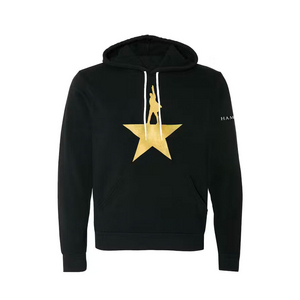 Hamilton Black Hoodie
Hamilton Black Hoodie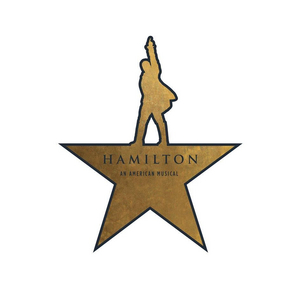 Hamilton Magnet
Hamilton Magnet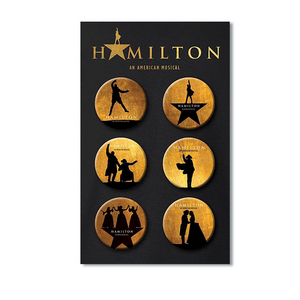 Hamilton Button Set
Hamilton Button Set